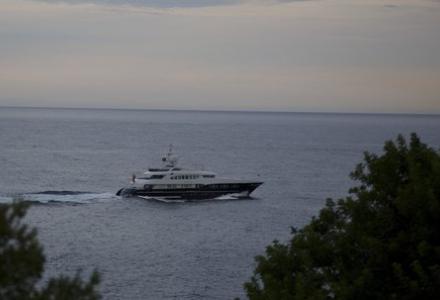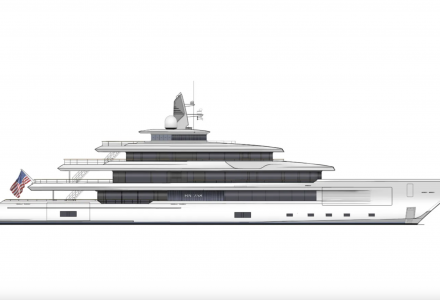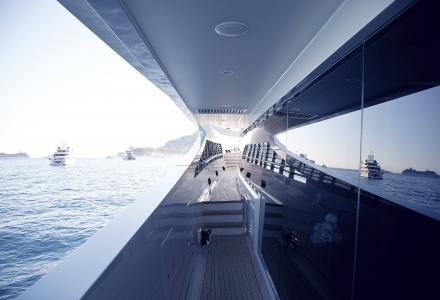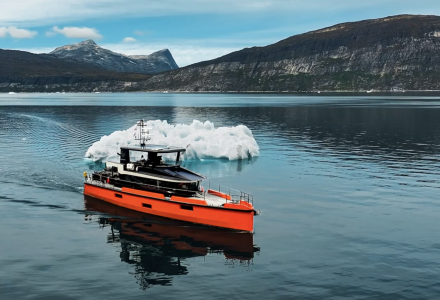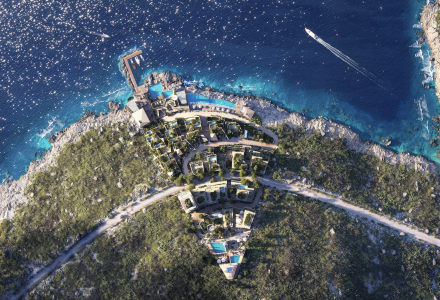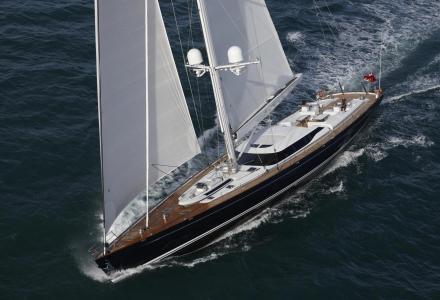Superyacht purchases are a peculiar form of investment. Unlike land or real estate, yachts are guaranteed to depreciate in value over time. Yet, new yachts are delivered every year and our database alone holds over 7.9 billion dollars worth of yachts for sale. One might therefore ask oneself what is driving this demand for yachts.
A yacht is arguably one of the most prestigious possessions one can have and would undoubtedly turn quite a few heads at cocktail parties. Owning, as opposed to chartering, can also provide greater freedom in terms of dates and itineraries. From these points alone, one could think that purchasing a yacht is an irrational choice that has no correlation with current economics.
Data however indicates otherwise. According to a report by Boat International, 205 yachts were sold in 2010, at the height of the recession, and this number has doubled to 412 yachts sold in 2014. This seems to indicate that yacht sales are in fact highly dependent on price as are most ordinary purchases. One might therefore consider whether now is a good time to purchase a yacht.
Despite a certain recovery in the market following the subprime crisis, the market is still far from its 2006/2007-state. As one might recall, a breed of yacht flippers had emerged in the early 2000s that commissioned yachts and sold them at a profit, a few months before launch. This arbitrage opportunity emerged due to the fact that most shipyards had their order books full for up to 3-4 years and led to profits for flippers of about 15% according to the Wall Street Journal.
These days now seem like a long-gone past for most players in the industry as we've shown in our article on the economics of yachting. Whereas some shipyards are venturing into speculative builds, either borrowing money from banks or putting up their own capital, others are holding off on any construction before finding a client for the new build.
On the brokerage side of the market, yachts typically go through several stages of price reductions before eventually being sold. This process can often take 2-3 years with the final price generally being 25-30% lower than the resulting asking price. In this buyer's market dynamic, it is the serious sellers that often manage to sell their yachts faster, understanding that a buyer has several options to choose from.
The willingness of owners to sell therefore seems to be the largest force shaping the industry since, once the prices become reasonable and near market-rate, buyers are quickly located. One can however wonder why owners set unreasonable prices in the first place when the succession of price reductions seems inevitable.
Will Christie, yacht broker at Y.CO, told the Superyacht Times in an interview: "Owners are in most instances relying on brokers to advise them on a pricing strategy that achieves a quick sale at the best possible price, but it's hard not to be attracted to the agents who are promising you 20-30% more than the others. Yachts that come onto the market at an overpriced level tend to languish there for 2-3 years (sometimes more) and only sell after a number of price reductions, during which period the owner has continuing running costs and depreciation to bear, notwithstanding a fair bit of frustration! After a few price reductions, it seems that potential buyers stand back as they await the next inevitable reduction - it's a dangerous spiral."
As a result of these multi-million assets being tied up in a long selling process, shipyards and suppliers have a hard time getting clients to build new yachts according to Mr Christie. This in turn leads to more stagnation in the industry as a whole. It is not uncommon for an owner to reject the first offer that comes in and eventually sell, a few years later, at a price lower than the first buyer would have given.
To conclude, one can therefore see that there are several good opportunities on the market today through sellers that have come to realize the actual value of their yachts. Although until the industry fully recovers, if it ever happens, reasonably-priced deals should keep coming on a rolling-basis. Consequently, there are and will be yachts with inflated prices and good deals on the market at the same time.
A yacht is arguably one of the most prestigious possessions one can have and would undoubtedly turn quite a few heads at cocktail parties. Owning, as opposed to chartering, can also provide greater freedom in terms of dates and itineraries. From these points alone, one could think that purchasing a yacht is an irrational choice that has no correlation with current economics.
Data however indicates otherwise. According to a report by Boat International, 205 yachts were sold in 2010, at the height of the recession, and this number has doubled to 412 yachts sold in 2014. This seems to indicate that yacht sales are in fact highly dependent on price as are most ordinary purchases. One might therefore consider whether now is a good time to purchase a yacht.
Despite a certain recovery in the market following the subprime crisis, the market is still far from its 2006/2007-state. As one might recall, a breed of yacht flippers had emerged in the early 2000s that commissioned yachts and sold them at a profit, a few months before launch. This arbitrage opportunity emerged due to the fact that most shipyards had their order books full for up to 3-4 years and led to profits for flippers of about 15% according to the Wall Street Journal.
These days now seem like a long-gone past for most players in the industry as we've shown in our article on the economics of yachting. Whereas some shipyards are venturing into speculative builds, either borrowing money from banks or putting up their own capital, others are holding off on any construction before finding a client for the new build.
On the brokerage side of the market, yachts typically go through several stages of price reductions before eventually being sold. This process can often take 2-3 years with the final price generally being 25-30% lower than the resulting asking price. In this buyer's market dynamic, it is the serious sellers that often manage to sell their yachts faster, understanding that a buyer has several options to choose from.
The willingness of owners to sell therefore seems to be the largest force shaping the industry since, once the prices become reasonable and near market-rate, buyers are quickly located. One can however wonder why owners set unreasonable prices in the first place when the succession of price reductions seems inevitable.
Will Christie, yacht broker at Y.CO, told the Superyacht Times in an interview: "Owners are in most instances relying on brokers to advise them on a pricing strategy that achieves a quick sale at the best possible price, but it's hard not to be attracted to the agents who are promising you 20-30% more than the others. Yachts that come onto the market at an overpriced level tend to languish there for 2-3 years (sometimes more) and only sell after a number of price reductions, during which period the owner has continuing running costs and depreciation to bear, notwithstanding a fair bit of frustration! After a few price reductions, it seems that potential buyers stand back as they await the next inevitable reduction - it's a dangerous spiral."
As a result of these multi-million assets being tied up in a long selling process, shipyards and suppliers have a hard time getting clients to build new yachts according to Mr Christie. This in turn leads to more stagnation in the industry as a whole. It is not uncommon for an owner to reject the first offer that comes in and eventually sell, a few years later, at a price lower than the first buyer would have given.
To conclude, one can therefore see that there are several good opportunities on the market today through sellers that have come to realize the actual value of their yachts. Although until the industry fully recovers, if it ever happens, reasonably-priced deals should keep coming on a rolling-basis. Consequently, there are and will be yachts with inflated prices and good deals on the market at the same time.
